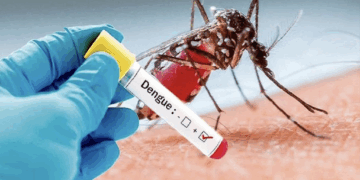Despite the touted benefits of Genetically Modified (GM) crops, experts have raised fresh concerns regarding the impact of the crops on human health and the environment.
They said that the Genetically Modified Organisms (GMOs) generally are not even a guaranteed solution to food security and hunger but rather serve as potential threat to the country’s food sovereignty.
According to them, the Nigerian government’s approach to regulating biodiversity and biosafety in approving GM crop applications is crucial for protecting the nation indigeneous seeds.
Recall that the federal government has recently approved Tela Maize for open cultivation, a genetically modified variety developed to resist fall armyworm, stem borers and tolerate moderate drought conditions.
However, executive-director, Centre for Food Safety and Agricultural Research (CEFSAR) Professor Qrisstuberg Amua said the approval was done in haste without adequate scrutiny to guarantee the safety for human consumption.
According to him, GMOs are engineered to resist high levels of pesticides, which could lead to a dependency on chemical-intensive farming methods.
He argued that this shift could result in increased pesticide runoff into water sources and soil while posing a significant risk to human health and the environment.
He also added that some reports suggest a correlation between the consumption of GMOs and an increase in health issues such as cancer and organ failure, particularly among the youth.
“We are asking, how did you carry out the tests to conclude that these products are safe? Make the results and the processes of these tests available to Nigerians. They should be available to open scrutiny.
Number two, how many varieties of this maize did you test, how many of them failed the test? If any. Number three, at what research facility do you carry out this investigation, scientific laboratory investigations or field investigations to arrive at the conclusions that you have convinced Nigerians by approving that these things are safe?
And then furthermore, who are the Nigerian scientists that carried out those tests so that we can see and in what publication in scientific journals are the result because these are scientific experiments and by practice, you publish them so that we can access these things and interrogate them”, Amua queried.
According to the director, Health of Mother Earth Foundation (HOMEF), Nnimmo Bassey, the proliferation of GMOs in Nigeria potents a loss of biodiversity and food sovereignty.
Bassey also called for outright ban of all GMOs in Nigeria and encouraged farmers to embrace agro-ecology farming methods using the indigenous seeds.





